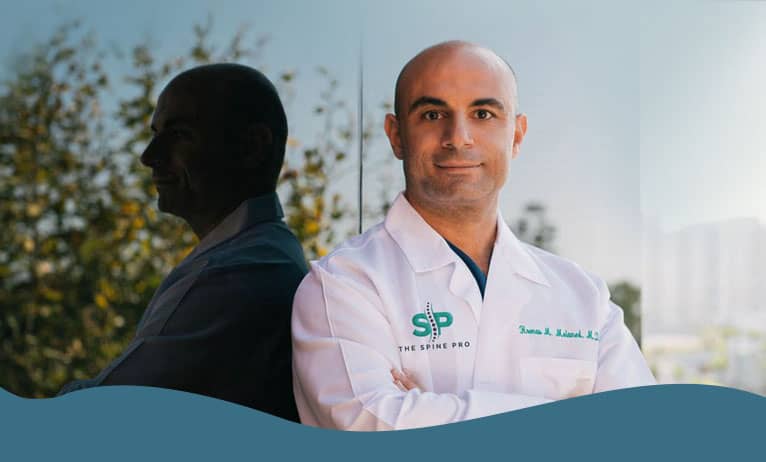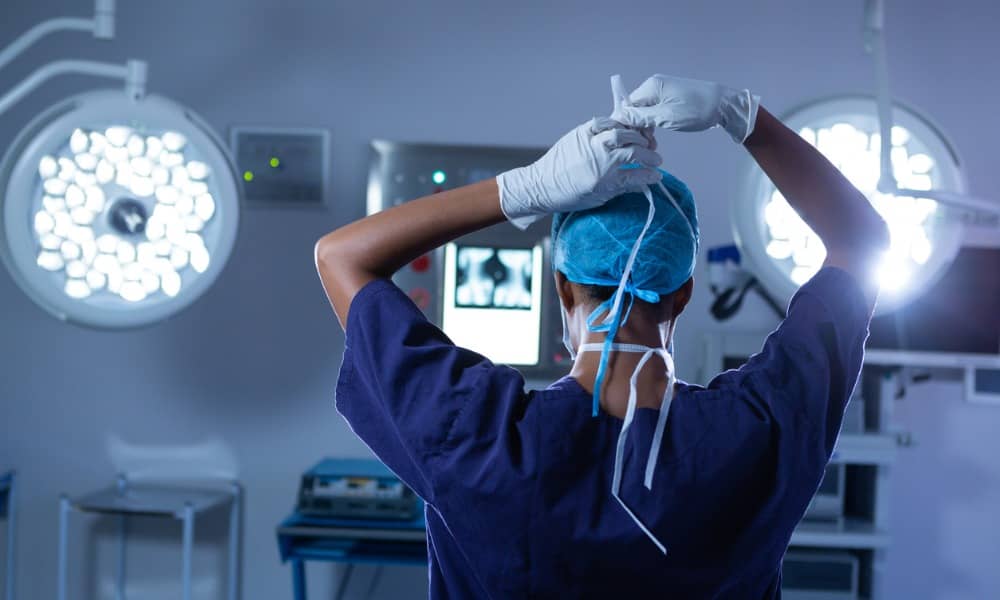Dr. Melamed Speaks on the Power of Holistic Medicine
Orthopedic spine surgeon Dr. Hooman Melamed of The Spine Pro joins Fight Back, a podcast by the Healthcare Consumer Rights Foundation, as a special guest. Dr. Melamed is a well-known advocate for holistic and integrated medicine, the idea that we need to address all aspects of our health for our bodies to maintain optimal condition. In this podcast, Steve Poisner, founder and executive director of Fight Back, speaks with Dr. Melamed about what holistic medicine looks like in our day-to-day practices, including incorporating probiotics and considering the food you eat.
Holistic Approach
The root cause of many diseases is gut health and the foods people consume in the U.S. In holistic and integrated medicine, natural remedies are used to treat conditions, rather than depending on medications, which have many long-term side effects.
The U.S. leads the world in chronic diseases, such as diabetes, high cholesterol, obesity, high blood pressure, and autoimmune disorders. The correlation is easy to identify, as the U.S. generally has the worst diet.
Lifestyle and nutrition have become a massive part of Dr. Melamed’s approach with patients. Treating one’s lifestyle oftentimes fixes the reason why patients see Dr. Melamed in the first place.
“In fact, most patients with spine conditions that come into my office, about 90%, can be treated successfully without the need for surgery,” Dr. Melamed stated in the podcast. However, to get these patients back to their baseline function, they will need to implement lifestyle changes and stick with them.
Anti-Inflammatory Diet
“Many of my patients with arthritis have eliminated pro-inflammatory foods, and it has drastically reduced their arthritic pain,” Dr. Melamed said. Nutrition and foods that cause inflammation are key players in the development of many of the conditions mentioned above.
Barley, rye, oats and grains are very inflammatory to the body. While eating the occasional piece of bread won’t cause harm, repeated consumption of these foods on a daily basis will disrupt one’s health and cause “leaky gut,” an unhealthy gut lining that may have large cracks or holes, allowing partially digested food, toxins and bugs to penetrate the tissues beneath it.
“Leaky gut” may trigger inflammation and change the gut flora (normal bacteria) that could lead to problems within the digestive tract and beyond. Some studies have even shown that leaky gut may be associated with autoimmune diseases, arthritis, asthma, obesity, and even mental illness.
Nightshades are another inflammatory food. The seeds in nightshades, such as eggplant, cucumber and tomatoes, are often a problem, causing inflammation and discomfort. Dairy and animal protein is yet another huge inflammatory marker. Processed red meat causes a high inflammatory response in the body. It is best to limit the amount of animal protein you consume, but switching to the following meats are better options:
- Pasture-raised poultry: chicken, turkey, duck, goose, and quail
- Pasture-raised or 100% Grass-fed beef (NOT grass-finish beef)
- Wild-caught fish
Dr. Melamed recommends a lectin-free diet. This diet calls for the removal of high-lectin foods, including grains, quinoa, legumes, nightshade vegetables, dairy, out-of-season fruit, and conventionally raised meat and poultry. These popular foods contain lectins, which are a significant source of inflammation that can also lead to chronic conditions, such as high blood pressure and high cholesterol. Legumes and lentils, if organic and pressure cooked, are okay to consume.
Humans have more nerve connections from the gut to the brain than anywhere else in the body. From communicating with the brain through nerves and hormones to warding off infectious agents like bacteria, viruses and fungi, the gut regulates everything in the body, so it is crucial to keep it healthy. By implementing these changes, many patients can heal their own body and possibly avoid surgery or heal much faster and better if they were to have surgery.
Listen to Dr. Melamed’s full podcast on Holistic Medicine here.






